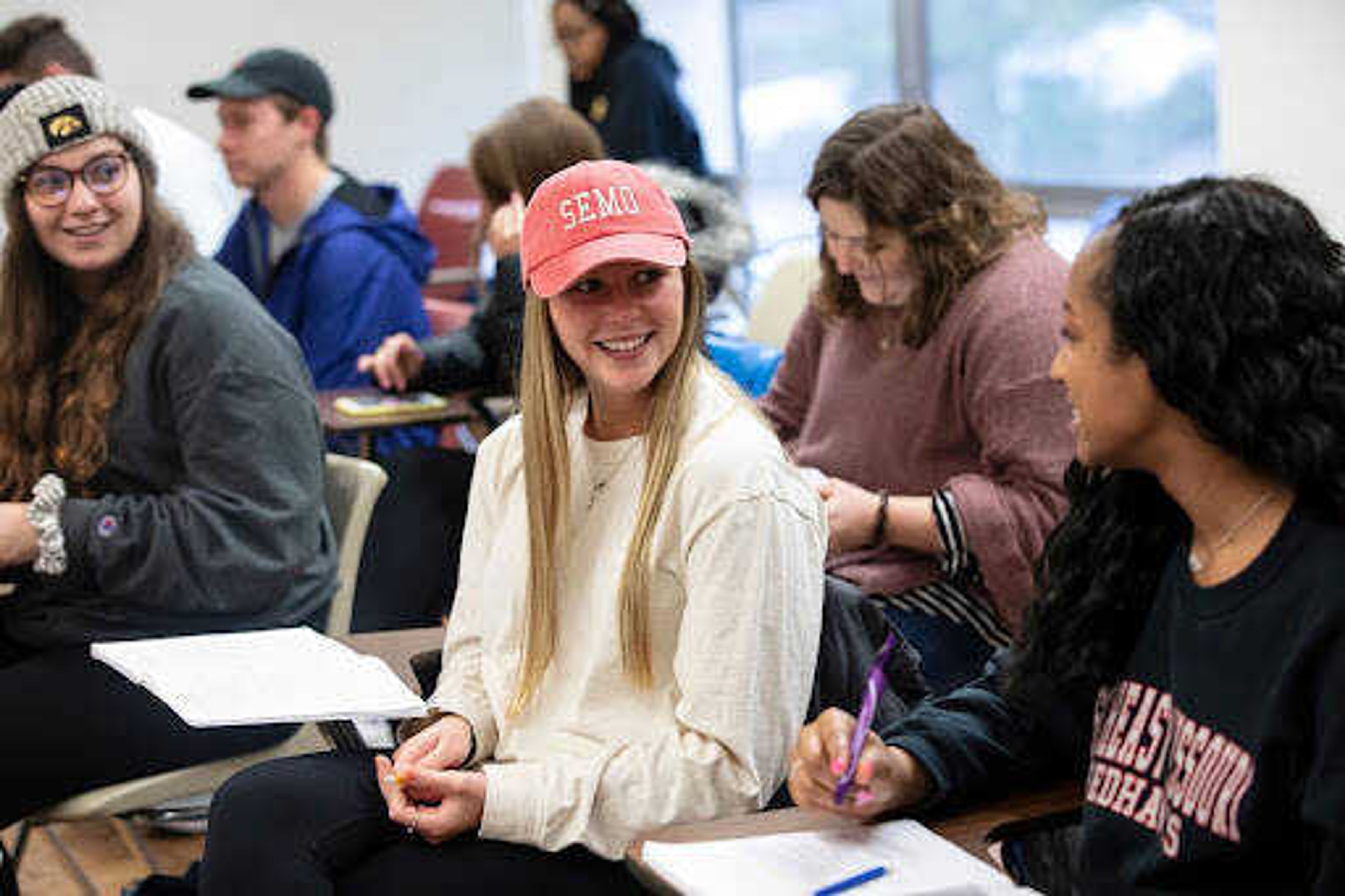Jobs within the humanities and social sciences field deal directly with people, their problems and how to help solve them. The faculty in the Department of Criminal Justice, Social Work and Sociology work to prepare students for success through adjunct faculty, internships, and promoting cultural and self-care.
Social work program director and instructor Kathie Miller said being adept at cultural humility and cultural competence while being aware of the issues that have to do with racism, sexism and genderism have been added into the practice’s ethical code.
“We have to be educated and competent to practice social work. We have to be able to do the cultural humility piece,” Miller said. “Because those things have been added to the code, they've also been added to the curriculum and the classes we teach with our students in order to hopefully better prepare them for what they're going to face when they go out to save the world.”
Criminal justice professor Michelle Kilburn said students are encouraged to use planning and research, and it is one of the most imperative things she wants her students to learn before completing the program.
“What I encourage my students to do is look at the data. So many times, we think we know what the best answer is. We think we know how we should be administering law enforcement. We think we know how a court should work or corrections,” Kilburn said. “Should we be going outside the box to see if maybe there's another perspective or program we’re missing or a variety of things? Not to just assume that what we're doing right now is what works.”
Department chairperson and associate professor of sociology Christopher Bradley said he likes to emphasize the principles of both critical and lateral thought when teaching.
“Critical thought is thinking outside the box, but lateral thought is thinking about the nature of the box itself. … Do we need a box? Would something else be better?” Bradley said.
Bradley said ultimately, what he tries to instill in his students is empathy — empathy for self and empathy for others.
“If you can place yourself in another person’s shoes, you can see the world from their perspective, and that creates a connection which is sorely lacking in this world today,” Bradley said.
The Department of Criminal Justice, Social Work and Sciology provides their students with multiple resources and opportunities to get students ready for what life in the field after college will consist of.
“We have internships that are available, and we encourage our students to be involved in internships, so that they can gather some real-world experience and to hear about those issues in the real-world environment and how those issues are being addressed,” Kilburn said.
The department places students at state, local and federal levels for internships. They have been able to have students get experience working with the Federal Bureau of Investigations, U.S. marshals, State Highway Patrol and more.
Kilburn said the department includes adjunct faculty who are involved in the community, such as Chief of Police Wes Blair, who teaches “White Collar Crime” and Judge Zac Horack, who teaches criminal law classes and invites students to see trials in court.
SEMO’s social work program requires students to participate in a field education semester. During that semester, students spend 448 hours in the field working with a social worker on a day-to-day basis.
“[This allows them to] see all the ins and outs of what [social workers deal] with and what the agency’s policies and procedures and response are to the things that are going on, especially in the social justice realm,” Miller said.
Faculty know humanities and social science work can cause mental and physical stress, so they always push the importance of including self-care into students’ routines.
“I think for criminal justice professionals, this is something we have struggled with, that self-care has not really been a focus. … In fact, in some areas, particularly law enforcement, it's seen as a weakness,” Kilburn said. “We really try to develop mental health awareness and recognize the potential for trauma within our fields, even vicarious trauma. Just making [students] aware that it's acceptable to reach out for services, and it's acceptable to consider the trauma that can go along with the field.”
Bradley said self-care is more than just saying one will “instill the routine,” as one actually has to take charge of their self-care and “do it.”
“I believe you establish a culture of self-care by establishing a culture of self-care. Even in my home life … 7 p.m., work is done. I don't care if there's anything that I missed, it's just done. It doesn't pick up again until 7 a.m., so I can have that time for myself to rest and recharge,” Bradley said. “By doing that, I’m hoping that my efforts as a leader serve as a model for others to do it, and then through that, we establish a culture of self-care.”
For more information about the Department of Criminal Justice, Social Work and Sociology, visit their website.






